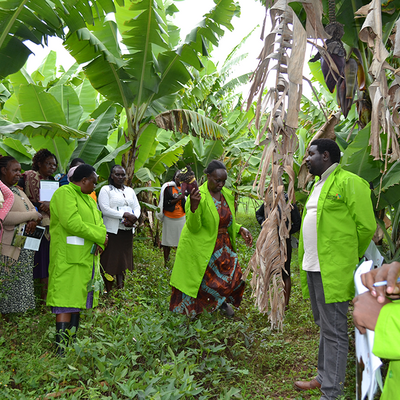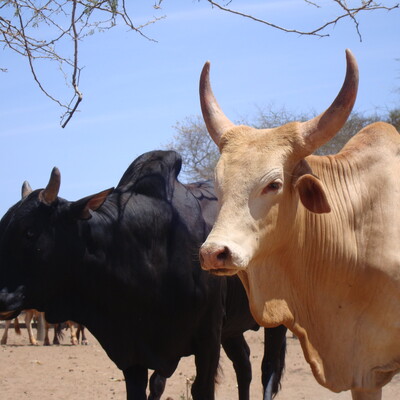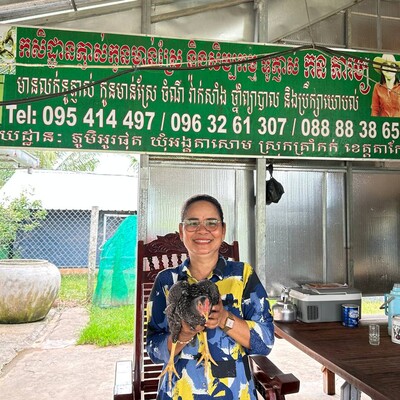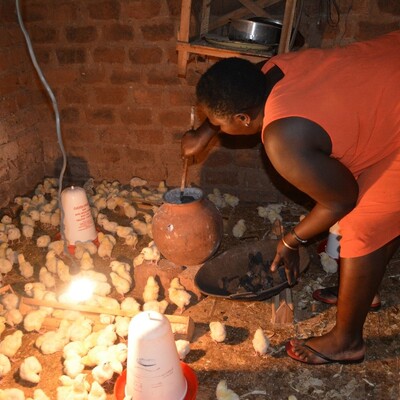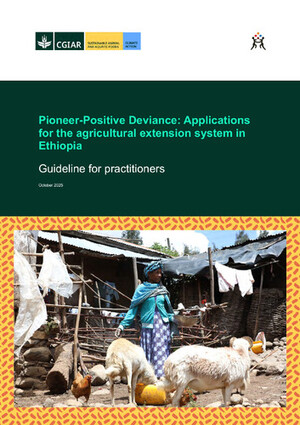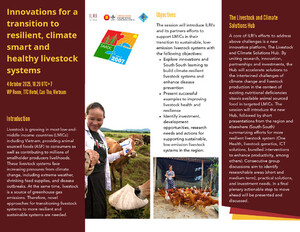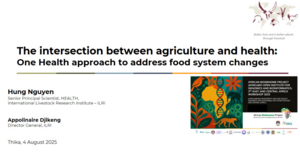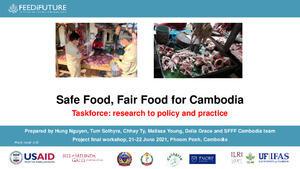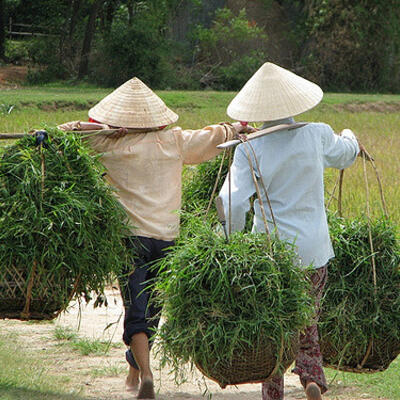
In Mali, an old vaccine can be a new way to fight poverty

Fishermen and Sahelian goats by the Niger River, in Segou, Mali (photo credit: ILRI/Stevie Mann).
Scientists working at the International Livestock Research Institute (ILRI) have found a way to significantly increase the vaccination coverage of goats and sheep in the Sahel against one of the most common and widely feared animal diseases—the peste des petits ruminants (PPR) or ovine rinderpest—a viral infection which is endemic to the region and kills up to 90% of the animals it infects. The approach is detailed in a recently published article in Frontiers in Veterinary Science by ILRI animal scientist Michel Dione.
Controlling PPR could significantly reduce poverty in the region, and so the Office International des Epizooties (OIE) and Food and Agricultural Organization (FAO) have set a goal of eradicating the disease by 2030. A vaccine against the disease has been around for decades and has a lifetime 100% effectiveness; however, its adoption worldwide remains spotty for several reasons: its high cost; the low awareness among farmers about the benefits of vaccination; the difficulty of accessing the vaccine in remote and insecure areas; and poor planning and monitoring of vaccination programs. Pushing vaccination rates upward will not only inoculate the treated animals, but help achieve herd immunity, checking the spread of the disease to the entire population, including unvaccinated animals.
ILRI scientists working in Mali on domestic ruminant livestock value chains helped increase the animals’ vaccination rates by improving interactions among vaccine stakeholders such as farmers, private veterinarians, local leaders and public veterinary services. The scientists encouraged the various stakeholders to collaborate in planning, implementing and evaluating the vaccination programs and fostering knowledge sharing, communication and capacity building.
These initiatives produced measurable improvements. After two years, vaccination coverage increased from 40,000 to 140,000 animals in Sikasso region and from 10,000 to 160,000 in Mopti region; the seroprevalence rate for PPR increased from 57% to 70% and from 51% to 57%, respectively. ‘These are very encouraging results’, says ILRI’s Dione, who led the project. ‘If we can continue to push those rates upward to 80%, and extend them nationwide, we believe we can achieve herd immunity’.
Goats and sheep are important in Mali and throughout the Sahel because they are hardy and drought-resistant animals that require relatively little care. They serve as a living bank to millions of men and women who generate their income from these animals. They are an important means for enhanced livelihood through income generation, especially for women and youth.
‘If we can reduce the threat of diseases such as peste des petits ruminants, we can contribute significantly towards the upliftment of livelihood of the poor and marginal farmers in these regions’, said Dione.






